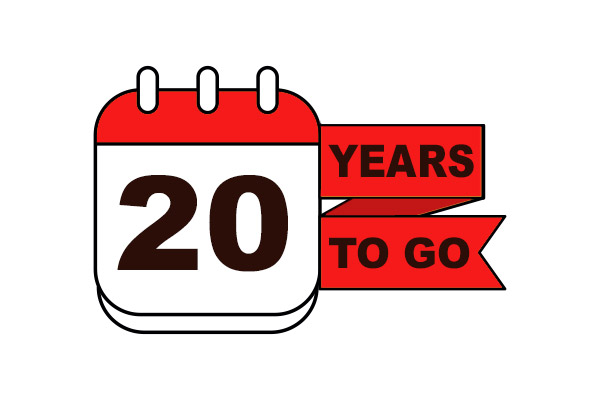A utility patent has a maximum duration of 20 years after the date the application was filed. Utility patents can expire earlier than this term if maintenance fees are not paid, or a court finds the patent invalid.
The purpose of the patent system is to promote development in science. To encourage innovation the United States Patent and Trademark Office (USPTO) rewards inventors with a patent for their invention. This patent allows the inventor to make money from the invention without competition by preventing others from making or using it.
This level of control can prevent others from using the invention for research purposes which may hinder the development of science. Patents expire to balance the incentive a patent provides with the drawback that a patent may restrict research.
What Happens When the Utility Patent Term Is Over?
When a patent expires all the rights granted to the patent holder expire with it.
Each patent application is assigned an application date corresponding to the day the application was filed. This date is called the effective filing date. The maximum term of a utility patent is 20 years after the effective filing date. When the term of a patent runs out it expires.
The owner of a patent can no longer use it to prevent others from making, using, or selling the invention after it expires. Any copying of the invention that occurs after the expiration date is not considered infringement. The patent holder may still sue for infringement that occurred while the patent was valid.
License agreements to collect royalty payments from the patent are no longer enforceable after it expires. The owner of a patent may choose to license the use to others in exchange for royalties. After the patent expires these royalty payments can no longer be enforced. This is true even if the license agreement states that royalty payments are enforceable after patent expiration.
The invention passes into the public domain once it expires. Anything in the public domain may be used freely by anyone.
An applicant must describe how to make and use an invention to receive a patent. This information goes on the published patent for everyone to see. Once the patent expires, anyone can utilize the patent description to understand how to make and use the invention.
Early Expiration
A patent may be terminated early by:
- A failure to pay maintenance fees
- A court finding the patent invalid
To keep a utility patent active, the patent holder must pay maintenance fees at 3.5 years, 5.5 years, and 11.5 years after the patent is granted. If the maintenance fees are not paid, the patent expires.
A patent may also expire if a court of law finds it invalid. If the owner of a patent sues someone for infringing their patent, the defending party may assert that the patent is invalid. The defendant may argue that the USPTO should have never granted the patent because it did not meet patentability requirement. If the court of law finds that the USPTO erred and should not have granted the patent, they may determine the patent to be invalid.
Can a Utility Patent Be Renewed?
A patent can only be renewed under limited circumstances.
A patent that expires because it has reached its maximum duration cannot be renewed.
A patent that expires due to an unintentional failure to pay maintenance fees may be reinstated. The holder of the patent must petition the USPTO to reinstate the patent. The holder must pay the maintenance fees, pay a petition fee, and submit the correct form explaining that failing to pay was unintentional.
The decision to invalidate a patent by a court of law can always be appealed to a higher court, all the way up to the Supreme Court. If the higher court determines that the patent is not invalid, it may be reinstated.
Sheldon Brown
Sheldon received his training of the patent system at the United States Patent & Trademark Office. He works with universities and consultants to provide analytics and guidance for technology commercialization from patents.

Patent Types Menu
Talk with a Patent Attorney
Get a free consultation from a patent attorney and protect your invention.
